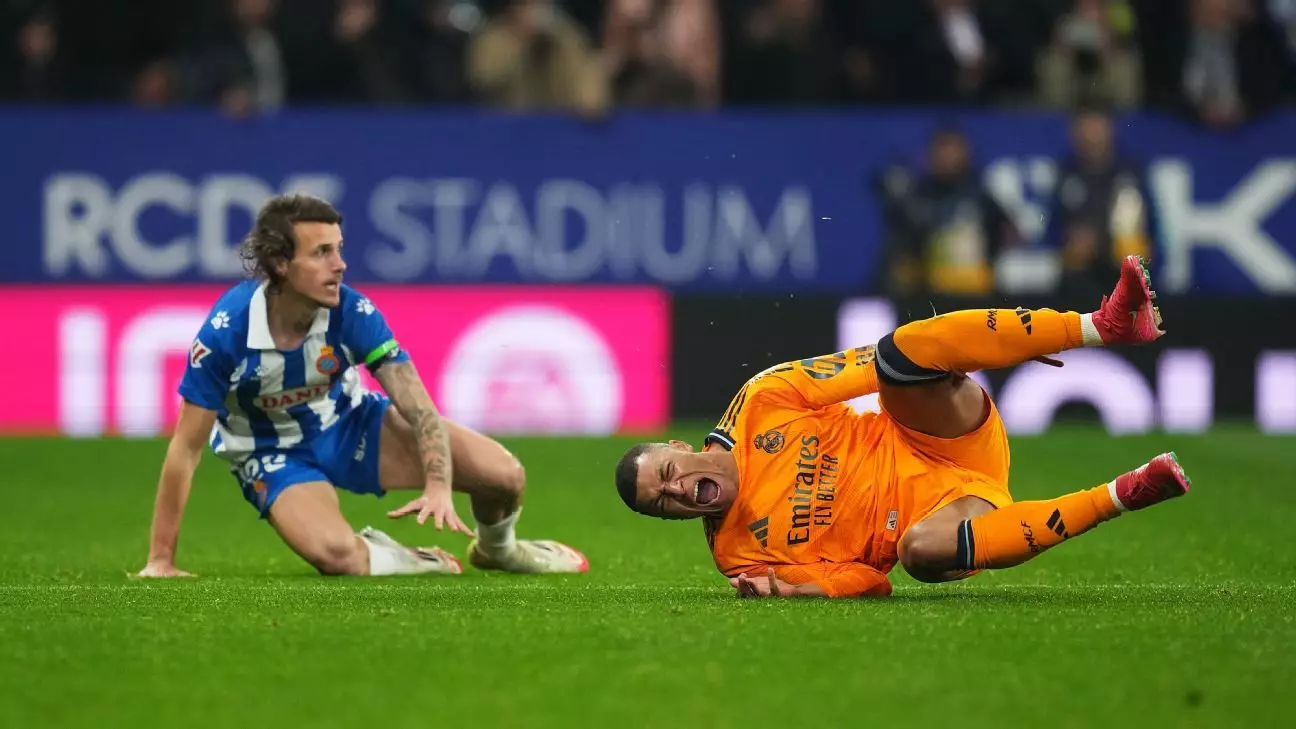In recent weeks, the tensions surrounding refereeing decisions in LaLiga have escalated dramatically, particularly following Real Madrid’s controversial defeat to Espanyol on February 1st, which ended in a 1-0 scoreline. This match has become a focal point of discussion, as the referee’s decisions have drawn significant scrutiny from the Madrid club. The catalyst for Madrid’s public outcry was a foul committed by Espanyol’s Carlos Romero on star player Kylian Mbappé, which was not penalized, allowing Romero to eventually score the game’s only goal. Additionally, an earlier goal from Vinícius Júnior was disallowed, further compounded by what Madrid sees as a series of critical errors.
Formal Complaint and Public Outrage
In response to these events, Real Madrid issued a four-page open letter directed toward the Spanish Football Federation (RFEF), vehemently criticizing the refereeing standards and labeling the entire officiating system as “completely discredited.” Their demands included the release of audio recordings from the VAR conversations, aiming for transparency in decision-making. The discontent within Madrid not only highlights the club’s frustrations but also underscores a larger issue within Spanish football regarding officiating standards.
The League’s Response
LaLiga president Javier Tebas quickly countered the sentiments expressed by Madrid, suggesting that the club had taken its grievances too far and was engaging in a narrative of victimhood. This accusation reflects a broader trend in football, where clubs may often feel maligned by officiating, particularly in high-stakes matches. The disagreement escalated into a back-and-forth, with LaLiga eventually indicating plans to file a complaint against Real Madrid for their public statements. This action underscores the delicate balance between clubs, referees, and the league itself, particularly in a fiercely competitive environment where every decision can lead to significant consequences.
This instance is not just about a single match or a few decisions; it illustrates a deeper rift within Spanish football. Refereeing inconsistencies have the potential to pervade the league’s integrity and diminish the quality of the competition. When clubs like Real Madrid feel compelled to launch formal complaints, it raises questions about the efficacy and transparency of the current officiating system. Consistent scrutiny can lead to calls for reform, and if the status quo remains unchallenged, discontent among clubs may continue to grow.
To remedy the situation, a commitment to refining the refereeing process is essential. Open dialogue between the clubs, LaLiga, and the RFEF is crucial to restoring faith in officiating. Furthermore, embracing new technologies and ensuring comprehensive training for referees could aid in mitigating future controversies. As this debate unfolds, it serves as a reminder of the complexities inherent in professional sports and the importance of maintaining fair play, transparency, and mutual respect among all stakeholders in the beautiful game.

